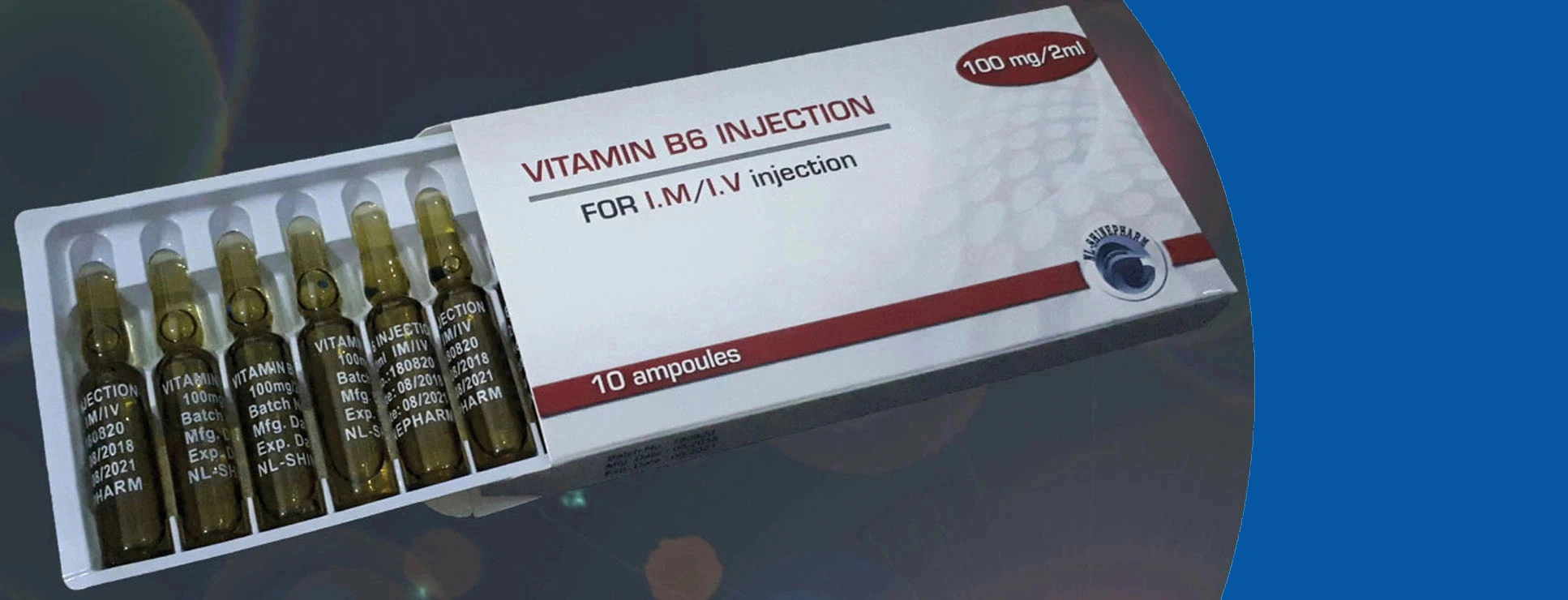info@shinepharms.com
+44 7478 549592
Vitamin B6 Injections: When a Shot is Necessary
Vitamin B6, also known as pyridoxine, is an essential nutrient that plays a vital role in numerous bodily functions. From supporting brain development to helping form red blood cells, B6 is a workhorse vitamin. While most people get adequate amounts through a balanced diet, certain situations might warrant a more direct approach: vitamin B6 injections.
Understanding Vitamin B6: The Basics
Before delving into injections, it's important to understand why B6 is so crucial. This vitamin is involved in:
Metabolism: Helps your body break down proteins, carbohydrates, and fats.
- Neurotransmitter Production: Plays a key role in the creation of neurotransmitters, which regulate mood, sleep, and other vital functions.
- Red Blood Cell Formation: Supports the production of hemoglobin, the protein in red blood cells that carries oxygen.
- Immune Function: Helps maintain a healthy immune system.
Good dietary sources of vitamin B6 include poultry, fish, chickpeas, bananas, potatoes, and fortified cereals.
When Diet Isn't Enough: The Case for Injections
While a well-balanced diet should typically provide adequate B6, certain conditions can lead to deficiencies or make it difficult for the body to absorb the vitamin effectively. This is where B6 injections might be considered. Common reasons for considering injections include:
- Severe Deficiency: Individuals with severe B6 deficiencies, often due to underlying medical conditions, may require injections to quickly restore levels.
- Malabsorption Issues: Conditions such as Crohn's disease, celiac disease, or ulcerative colitis can impair the body's ability to absorb nutrients, including B6.
- Certain Medications: Some drugs, such as certain antibiotics and anti-tuberculosis medications, can interfere with B6 absorption or increase its excretion, leading to deficiency.
- Alcoholism: Chronic alcohol abuse can impact nutrient absorption and utilization, increasing the risk of deficiencies.
- Specific Medical Conditions: Conditions like sideroblastic anemia might respond to vitamin B6 supplementation, sometimes requiring injections.
- Morning Sickness/Hyperemesis Gravidarum: In severe cases of pregnancy-related nausea and vomiting, B6 injections are sometimes used to help manage symptoms and replenish the body's supply.
How Vitamin B6 Injections Work
Unlike oral supplements, injections deliver B6 directly into the bloodstream, bypassing the digestive system. This allows for faster absorption and higher concentrations of the vitamin in the body. Injections are typically administered intramuscularly (into a muscle).
Vitamin B6 Injections Potential Benefits
When used appropriately, B6 injections can:
Quickly correct a severe deficiency.
Alleviate symptoms associated with B6 deficiency such as fatigue, irritability, mood swings, skin problems, and in severe cases, seizures.
May reduce nausea and vomiting associated with pregnancy. However, they are not a first-line treatment and are typically reserved for severe cases when oral supplements are not effective.
Potentially improve outcomes in specific conditions: For example, in some cases of sideroblastic anemia, B6 injections may help improve red blood cell production.



